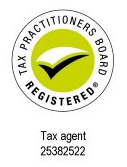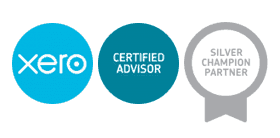The Commissioner of Taxation wields considerable authority under subsection 126A(2) of the Superannuation Industry Supervision Act 1993. Under this act, the ATO Commissioner is authorized to disqualify individuals from acting as trustees or directors of company trustees in Self-Managed Superannuation Funds (SMSFs).
Recently, in last week itself, 13 SMSF trustees faced disqualification from their roles as trustees or directors of corporate trustees.
It is crucial to comprehend the reasons behind such disqualifications. Typically, these disqualifications arise due to a breach of one or more rules and regulations stipulated in the Superannuation Industry Supervision Act (SISA).
The responsibility for ensuring compliance with superannuation laws squarely rests on the shoulders of the trustees or directors of company trustees. Its imperative for you as their SMSF Advisor or Administrator to make your clients privy of these causes and its effect on their trusteeship.
What are the main reasons of disqualification?
Below are some of the most common reasons why a Self-Managed Superannuation Fund (SMSF) trustee may be disqualified from their role.
- Breach of Superannuation Laws:
Trustees must comply with the Superannuation Industry Supervision Act 1993 (SISA) and other relevant superannuation laws. Any violation of these laws can lead to disqualification. Common breaches include exceeding contribution limits, making prohibited investments, or not meeting the minimum standards for fund management.
- Failure to Act in the Best Interests of Members:
Trustees have a fiduciary duty to act in the best interests of all SMSF members. Any actions or decisions that prioritize one member’s interests over others or that result in unfair benefits can lead to disqualification.
- Inadequate Record-Keeping:
SMSFs are required to maintain accurate and comprehensive records of all financial transactions and decisions. Inadequate record-keeping practices or the failure to keep records for the required period can result in disqualification.
- Financial Mismanagement:
Mismanaging the fund’s investments or assets, such as using fund assets for personal gain, can lead to disqualification. Trustees must ensure that the fund’s assets are protected and invested prudently.
- Non-Compliance with Investment Restrictions:
SMSFs are subject to strict investment rules, including restrictions on investing in related parties and acquiring certain assets. Violating these investment restrictions can result in disqualification.
- Failure to Appoint an Approved Auditor:
SMSFs must have their financial statements audited annually by an approved auditor. Failure to appoint an approved auditor or cooperate with the auditing process can lead to disqualification.
- Failure to Lodge Annual Returns:
Trustees are required to lodge annual returns and financial statements with the ATO by the specified due dates. Failing to do so can result in penalties and, in severe cases, disqualification.
- Insolvency:
If a trustee becomes bankrupt or insolvent, they may be disqualified from managing an SMSF, as they may not have the financial capacity to fulfil their obligations.
- Criminal Convictions:
Certain criminal convictions, particularly those involving fraud or dishonesty, can lead to disqualification as a trustee.
- Breach of Sole-Purpose Test:
SMSFs must be maintained for the sole purpose of providing retirement benefits to members. Any activities that breach the sole-purpose test, such as early access to superannuation for non-retirement purposes, can result in disqualification.
It’s essential for you to make your SMSF trustee clients be aware of their responsibilities and to proactively ensure compliance with superannuation laws and regulations. Seeking professional advice and regularly reviewing the fund’s operations can help your clients to be aware of their obligations and compliance requirements to prevent disqualification and legal repercussions.
Additionally, staying informed about changes in superannuation laws is crucial to maintaining a compliant SMSF.
Importance of an up to date “SMSF Trust Deed”
It’s of a paramount importance for SMSF Trustees to adopt a trust deed which is up to date with all legislative changes and requirements. An old SMSF trust deed may not have latest inclusions of various changes that have been incorporated in the SIS Act.
Besides this it is important to have a deed which is well-drafted and provides detailed explanation to the rules or regulations so that trustee can make an informed decision.
Our trust deed incorporates all legislative changes 1st July 2023, including relevant SIS rules and regulations. By complying with the terms of the deed, you are adhering to superannuation laws. However, in complex situations where professional advice or guidance may be needed, it’s better to seek it promptly rather than risk disqualification.









